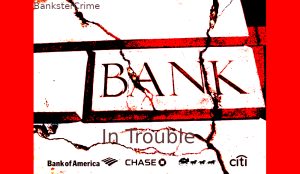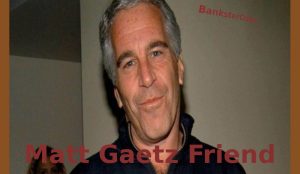The Bible records two instances of Jesus cleansing the temple of money changers and those selling sacrificial animals. Jesus’ first encounter with money changers was at the beginning of His three-year ministry (John 2:14–16). He made a whip of cords and drove them out. The second time He confronted the money changers was the week before His trial and crucifixion. Seeing that the money changers had come back, He again drove them out, saying, “It is written, ‘My house will be called a house of prayer,’ but you are making it ‘a den of robbers’” (Matthew 21:13).
Regulators on Friday shut down banks in Missouri, Illinois, Iowa, and Arizona, pushing to 89 the number of banks that have failed this year under the weight of the soured economy and rising loan defaults.
The Federal Deposit Insurance Corp. took over First Bank of Kansas City, based in Kansas City, Mo., with $16 million in assets and $15 million in deposits and shut down Sioux City, Iowa-based Vantus Bank with $458 million in assets and $368 million in deposits.
The FDIC seized two banks in Illinois; Oak Forest-based InBank, with $212 million in assets and $199 million in deposits and Platinum Community Bank in Rolling Meadows, which had $346 million in assets and $305 million in deposits.
First State Bank in Flagstaff, Ariz. was also shuttered by the FDIC. The bank had $105 million in assets and deposits totaling $95 million.
The agency said First Bank of Kansas City’s deposits will be assumed by Great American Bank based in De Soto, Kan. Its sole branch will reopen Saturday as a branch of Great American Bank.
Vantus Bank’s deposits will be assumed by Great Southern Bank in Springfield, Mo. All 15 of Vantus Bank’s branches will reopen Saturday as branches of Great Southern Bank.
In addition, the FDIC agreed to share with Great Southern Bank losses on about $338 million of Vantus Bank’s assets.
Nearly all of InBank’s deposits will be assumed by MB Financial Bank in Chicago. Some brokered deposits will not be assumed by MB Financial Bank. InBank’s three branches will reopen Saturday as branches of MB Financial Bank.
The FDIC did not find another bank to take over Platinum Community Bank’s branches or deposits. Instead, the FDIC will pay out insured deposits at Platinum Community Bank. Government direct deposits, such as Social Security and veterans’ payments, will be handled by MB Financial Bank’s Palatine, Ill. branch.
The FDIC insures accounts up to $250,000. Depositors with accounts larger than $250,000 will be able to receive details about whether their accounts are fully covered beginning Tuesday by checking the FDIC’s website.
First State Bank’s deposits will be acquired by Sunwest Bank in Tustin, Calif. First State Bank’s six branches will reopen Tuesday as branches of Sunwest Bank.
The failure of First Bank of Kansas City is expected to cost the FDIC’s deposit insurance fund an estimated $6 million. InBank’s failure will cost the insurance fund $66 million, while Vantus Bank’s failure will cost the fund $168 million. Platinum Community Bank’s failure will cost the fund about $114 million. First State Bank’s collapse will cost the FDIC’s insurance fund $47 million.
Hundreds of more banks are expected to fail in the next few years largely because of souring loans for commercial real estate. The number of banks on the FDIC’s confidential “problem list” jumped to 416 at the end of June from 305 in the first quarter. That’s the highest number since June 1994, during the savings-and-loan crisis.
Last month, Guaranty Bank became the second-largest U.S. bank to fail this year after the big Texas lender was shut down and most of its operations sold at a loss of billions of dollars for the government to a major Spanish bank. The failure, the 10th-largest in U.S. history, is expected to cost the insurance fund an estimated $3 billion.
The sale of most of the Austin-based Guaranty’s operations to the U.S. division of Banco Bilbao Vizcaya Argentaria, Spain’s No. 2 bank, marked the first time a foreign bank has bought a failed American bank during the current financial crisis.
The insurance fund has been so depleted by the epidemic of collapsing financial institutions that some analysts have warned it could sink into the red by the end of this year. The fund fell 20% to $10.4 billion at the end of June, the FDIC reported Thursday.
That’s its lowest point since 1992, at the height of the S&L crisis. The agency estimates bank failures will cost the fund around $70 billion through 2013.
U.S. banks overall lost $3.7 billion in the second quarter, compared with a profit of $7.6 billion in the January-March quarter, according to the FDIC. Surging levels of soured loans at banks dragged down profits in the April-June period.
FDIC Chairman Sheila Bair has said there were no immediate plans to borrow money from the government to replenish the insurance fund by tapping the agency’s $500 billion credit line with the Treasury. The FDIC may, however, impose an additional fee on U.S. banks this year to bolster the fund, atop the estimated $5.6 billion from a new emergency premium that took effect June 30.
The FDIC is fully backed by the government, which means depositors’ money is guaranteed up to $250,000 per account. And the agency still has billions in loss reserves — including $21.6 billion in cash — apart from the insurance fund.
Last week, the FDIC opened the door wider for private investors to buy failed financial institutions. The FDIC’s board voted to reduce the cash that private equity funds must maintain in banks they acquire.
Private equity funds have been criticized as excessive risk-takers. But with fewer healthy banks willing to buy ailing institutions, the banking crisis has softened the FDIC’s resistance to private buyers.
Editor, Bankster Crime
StevieRay Hansen
Editor, Bankster Crime
MY MISSION IS NOT TO CONVINCE YOU, ONLY TO INFORM…
#Fraud #Banks #Money #Corruption #Bankers,#Powerful Politicians, #Businessmen


![]()




